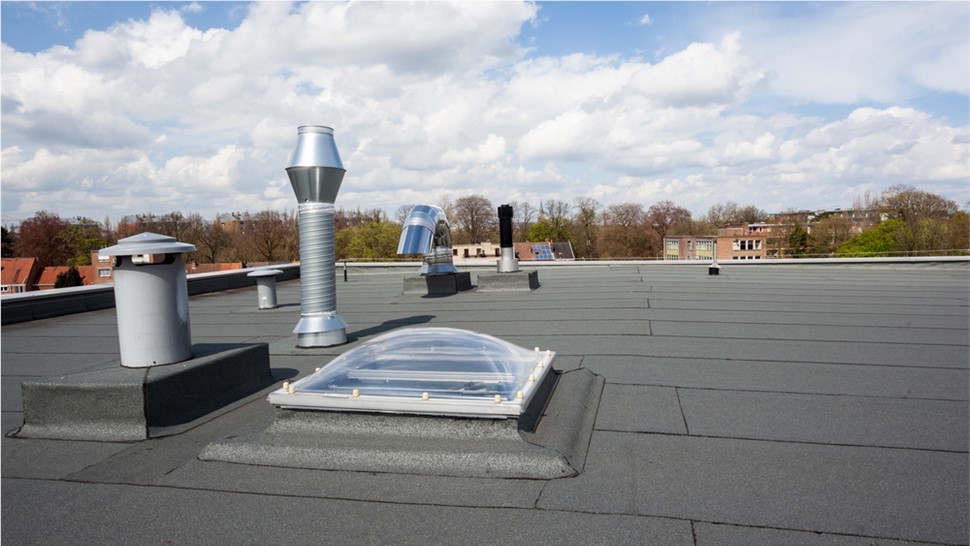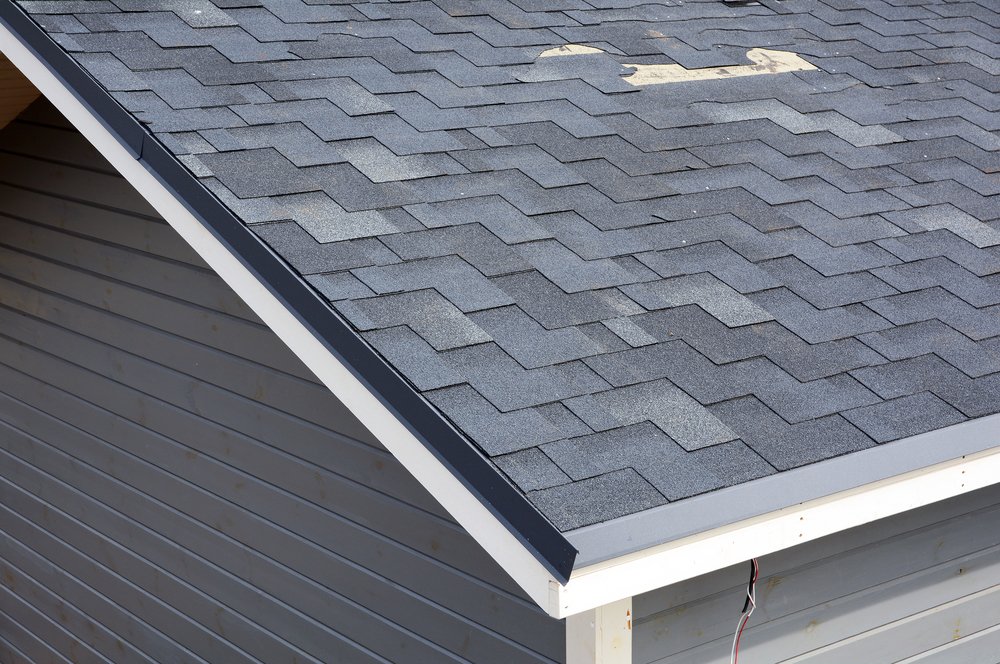
There are many different types of commercial roofing that can be used in the construction of a business. Each type has its own set of characteristics and benefits, but there are some factors to consider when deciding which type is best for your roof replacement or roof repair.
To get started, here's a breakdown of seven popular types of commercial roofing.
Built-Up Roofing
The most common type of commercial roofing is built-up roofing. This is a type of construction that uses multiple layers of materials. The materials used in these roofs vary greatly, but they typically include asphalt shingles or metal panels. Built-up roofs are popular choices for new commercial buildings because they're less costly and more durable than other types of commercial roofing.
Asphalt sheets with granule surfaces are typically used on this style of roof to provide solid protection against weather damage and fire hazards. A layer of felt paper or tar paper is then added underneath the shingles as insulation against heat loss or lightning strikes.
Modified Bitumen Roofing
Modified bitumen roofing is an asphalt-based product that is applied by a hot melt method. It's made up of bitumen or asphalt cement, mineral aggregate and polymer modifiers, color pigment, and antioxidants. The aggregate gives the material its strength and durability, and the colorant gives it its aesthetic appeal. The additive helps with water resistance (waterproofing), gloss, adhesion to substrates, and flexibility at low temperatures.
Modified bitumen has been used for decades because of its affordability and durability. It's designed to last up to 25 years under normal wear conditions. Modified bitumen shingles are typically made in four different grades: Class 1 (basic), Class 2 (medium quality), Class 3 (premium), or Class 4 (superior quality). These classifications depend on how many additives have been added during production. The more additives used during production, the higher the resistance against weathering elements such as rainwater runoff or snow melt/ice dams.
TPO Roofing
TPO is a type of single-ply roofing membrane that is made from two layers of polypropylene (PP) bonded together with a layer of acrylic adhesive between them.
TPO is resistant to ultraviolet radiation, which makes it ideal for outdoor applications. The most common TPOs are EPDM and PVC.
EPDM Roofing
EPDM roofing is a rubber roofing material. You may have seen it before, as it's one of the most common and popular commercial roofing materials.
EPDM is an abbreviation for Ethylene Propylene Diene Monomer, a synthetic rubber that's used for many different applications. It's often used in waterproof boots, seals, and gaskets because it's resistant to weather, corrosion, and chemicals.
The most common type of EPDM is called Hypalon (a registered trademark) which is made from butadiene (a polymer) and chlorine rubber (thermoset).
PVC Roofing
PVC roofing is a type of built-up roofing system. It is made up of three layers:
The Base Layer (Waterproofing Layer)
The Middle Layer (Insulation Layer)
Veneer Layer (Adds Color and Style)
Metal Roofing
Metal roofing is durable, long-lasting, and energy efficient. It's a good choice for coastal areas and areas with high winds. Metal roofing can be made to look like other types of roofing if you have a specific aesthetic in mind for your home or business.
Metal roofs are very durable and long-lasting. They usually come with a 50-year warranty on the materials used in manufacturing. They're also very energy efficient because they reflect heat away from your home or business, which helps keep utility bills down over time. Aluminum is another popular choice when it comes to choosing metal because it's lightweight yet still very strong.
Fiberglass Roofing
Fiberglass is made from polyester resin and glass fibers that are combined to create a matting-like material. This can be rolled out over existing roofs with minimal disruption to your work environment and minimal labor costs. It is also much more energy-efficient compared to other roofing types.
Learn More About Our Roofing Company
As you can see, there are many commercial roofing types and styles to choose from. It’s important to select the right one for your business needs and budget. However, it’s always best to consult with professionals like Amos Exteriors before making any big decisions.
Contact the roofing professionals at Amos Exteriors today to learn more about our roof replacement or repair services.
Subscribe to Amos Exteriors's Blog






Comments